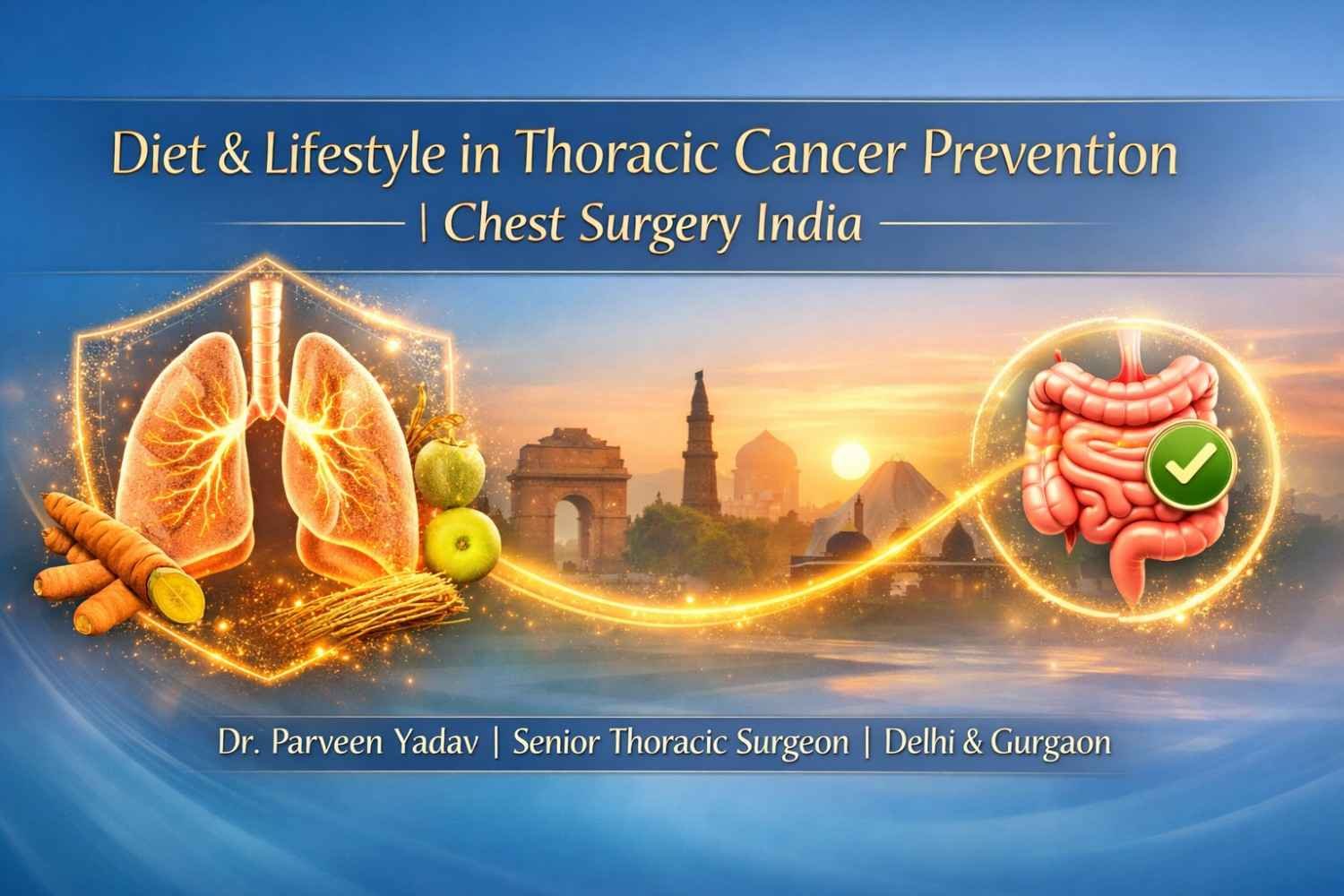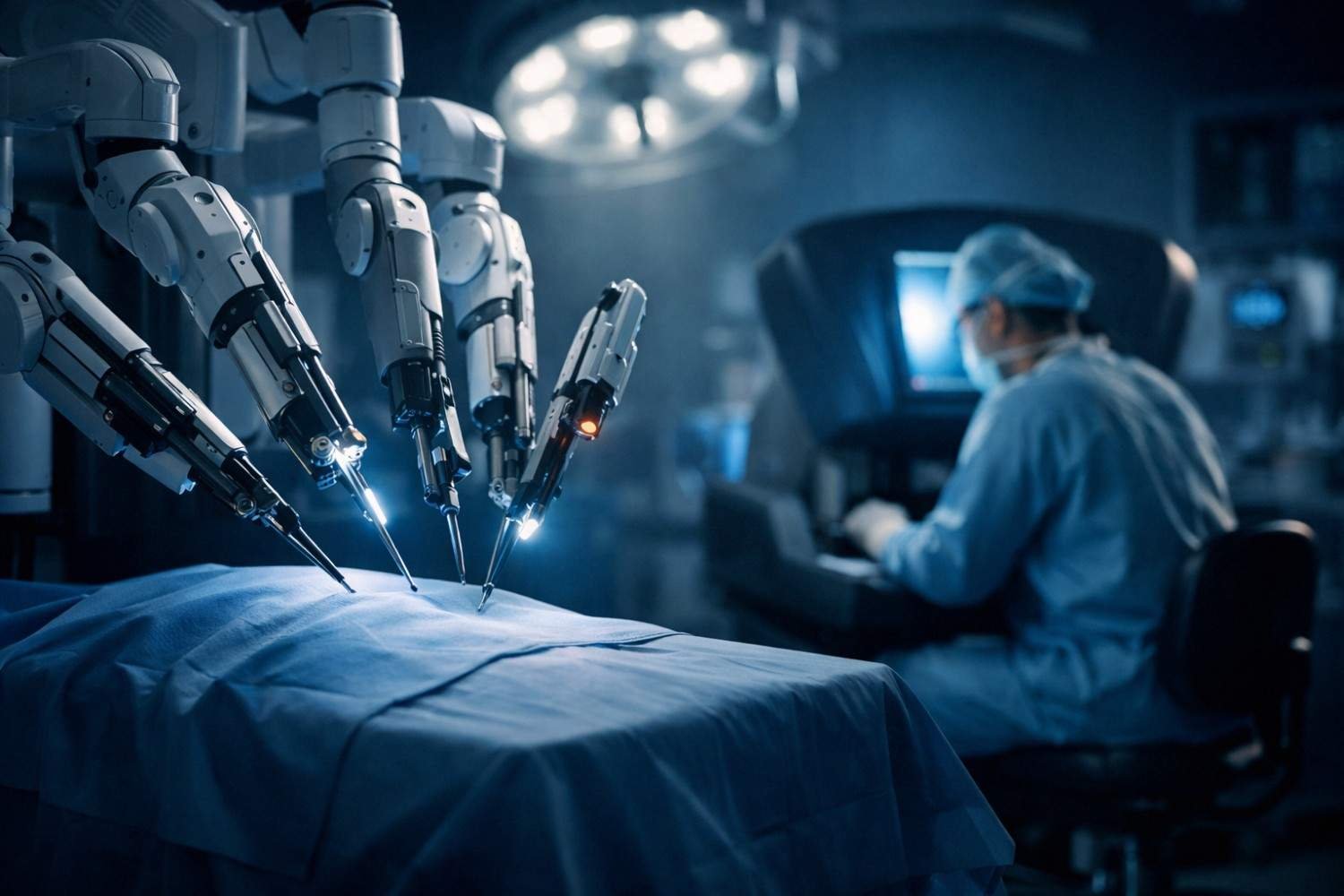

The human body is an intricate system susceptible to various ailments. One such condition that demands attention is food pipe cancer, scientifically known as esophageal cancer. This blog will delve into this disease's types, causes, symptoms, and treatments to provide valuable insights for better understanding and awareness.
Food pipe cancer, also known as esophageal cancer, is a malignant condition that affects the esophagus—the tube connecting the throat to the stomach. This type of cancer develops when cells in the lining of the esophagus undergo abnormal changes, leading to the formation of tumours.
Food pipe cancer primarily manifests in two main types: adenocarcinoma and squamous cell carcinoma.
1. Adenocarcinoma: This cancer variant often develops in the lower esophagus, frequently among those with a history of gastroesophageal reflux disease (GERD), leading to abnormal cell growth in the esophagus.
2. Squamous Cell Carcinoma: Secondly, Squamous cell carcinoma begins in the cells lining the esophagus's upper part. It is incorporated with risk factors such as smoking, excessive alcohol consumption, poor nutrition, and exposure to certain chemicals.
Several factors can contribute to the development of food pipe cancer:
1. Tobacco Use: Smoking cigarettes, cigars, or pipes increases the risk of esophageal cancer.
2. Alcohol Consumption: Heavy and prolonged alcohol consumption is a significant risk factor.
3. Obesity: Excess body weight or obesity can significantly increase the chances of developing adenocarcinoma of the esophagus.
4. Dietary Factors: A diet rich in fruits and vegetables and low in processed foods can decrease the risk of developing diseases.
5. Chronic Acid Reflux: Persistent GERD can lead to Barrett's esophagus and subsequently increase the risk of adenocarcinoma.
6. Age and Gender: Esophageal cancer is more common in individuals over the age of 60 and is more prevalent in men than women.
Recognising the symptoms of food pipe cancer is crucial for early detection and timely intervention. Common signs and symptoms include:
1. Difficulty Swallowing: Also known as dysphagia, difficulty swallowing is one of the earliest and most prominent symptoms of esophageal cancer.
2. Unintended Weight Loss: Difficulty swallowing and reduced food intake may cause significant, unexplained weight loss.
3. Chest Pain: Persistent chest pain or discomfort, particularly behind the breastbone, may indicate advanced food pipe cancer.
4. Chronic Heartburn or Indigestion: Chronic acid reflux or persistent heartburn, significantly if not relieved by over-the-counter medications, warrants medical evaluation.
5. Hoarseness or Chronic Cough: Esophageal cancer can affect the voice box or trachea, leading to hoarseness or a chronic cough.
The treatment approach for food pipe cancer may vary depending on factors such as cancer stage, overall health, and individual preferences. Treatment options include:
1. Surgery: Surgical tumour removal is often recommended when cancer is localised.
2. Chemotherapy: Here, Chemotherapy is a treatment that uses drugs to kill cancer cells. It is combined with surgery or radiation therapy.
3. Radiation Therapy: High-energy rays aim to eliminate cancerous cells precisely.
4. Targeted Therapy: Targeted drugs are designed to interfere with specific abnormalities in cancer cells, inhibiting their growth.
Sometimes, the most favourable outcome can be achieved by combining different treatments.
Food pipe cancer is a severe condition that requires prompt attention and appropriate treatment. People can take active steps towards early detection and management of this disease by understanding its types, causes, symptoms, and treatments. If you or a loved one are facing esophageal cancer, seeking guidance from a qualified healthcare professional is paramount. Food pipe cancer treatment in Gurgaon, Delhi, is available at reputable facilities such as Chest Surgery India, led by senior consultant Dr. Parveen Yadav, where esophageal cancer specialists, doctors, and surgeons provide comprehensive care. Don't hesitate to reach out for assistance and support on your journey towards recovery.
Remember, early detection saves lives. Stay informed, stay vigilant, and prioritise your health and well-being.
1. What is food pipe cancer?
Ans: Esophageal or food pipe cancer is a malignancy affecting the esophagus.
2. What are the common symptoms?
Ans: Common symptoms include difficulty swallowing, unintended weight loss, chest pain, chronic heartburn, hoarseness, or cough.
3. What are the primary causes?
Ans: Tobacco use, alcohol consumption, obesity, dietary factors, chronic acid reflux, age, and gender are primary causes.
4. What treatments are available?
Ans: Treatments include surgery, chemotherapy, radiation therapy, and targeted therapy, often combined.
5. How important is early detection?
Ans: Early detection is crucial for better treatment outcomes and increased chances of survival. So, consult Dr. Parveen Yadav today!
About Dr. Parveen Yadav
Dr. Parveen Yadav is a highly recommended surgeon or specialist for esophageal cancer treatment in Gurgaon, Delhi. He specialises in minimally invasive and robotic thoracic onco surgery. He has been recognised for 17+ years as the best chest surgeon in Gurgaon, Delhi, for his expertise in treating chest-related (chest surgery) ailments, such as Esophageal, Lung, Tracheal (Throat), Chest wall tumours, Mediastinal Tumors, Empyema, and Bronchopleural Fistula cancer. With a focus on precision and innovation, he is dedicated to offering exceptional care to his patients, utilising advanced techniques to ensure optimal outcomes.

18+ Yrs Exp | 5,700+ Thoracic & Robotic Cancer Surgeries
Dr. Parveen Yadav is a Director and Senior Consultant in Thoracic and Surgical Oncology, specializing in minimally invasive and robotic lung and esophageal surgeries, with advanced training from AIIMS and Tata Memorial Hospital.
View Full Profile Pain After Thoracic Surgery: Tips for Smooth Recovery
Pain After Thoracic Surgery: Tips for Smooth Recovery
 Diet & Lifestyle for Thoracic Cancer Prevention | Dr. Parveen Yadav
Diet & Lifestyle for Thoracic Cancer Prevention | Dr. Parveen Yadav
 Robotic Thoracic Surgery: How Da Vinci Technology is Revolutionizing Chest Procedures
Robotic Thoracic Surgery: How Da Vinci Technology is Revolutionizing Chest Procedures
Struggling with pain after chest surgery? Dr. Parveen Yadav shares expert recovery tips, causes of shoulder pain, PTPS signs, and what your discharge sheet won't tell you.
Discover how diet, breathing exercises & daily habits help prevent and recover from thoracic cancer. Expert insights from Dr. Parveen Yadav, Chest Surgery India
Discover how Da Vinci robotic surgery is transforming chest procedures in Gurgaon. Less pain, faster recovery & expert care by a certified thoracic surgeon
Copyright 2026 © Dr .Parveen Yadav all rights reserved.
Proudly Scaled by Public Media Solution!